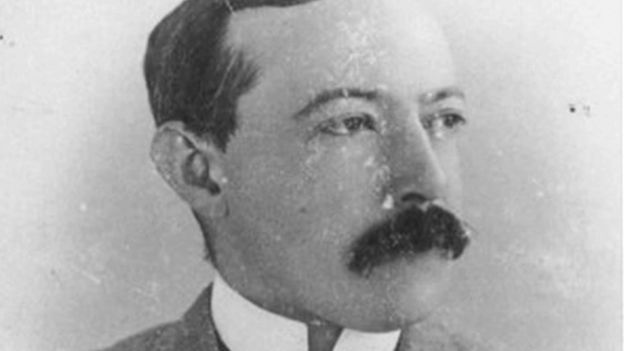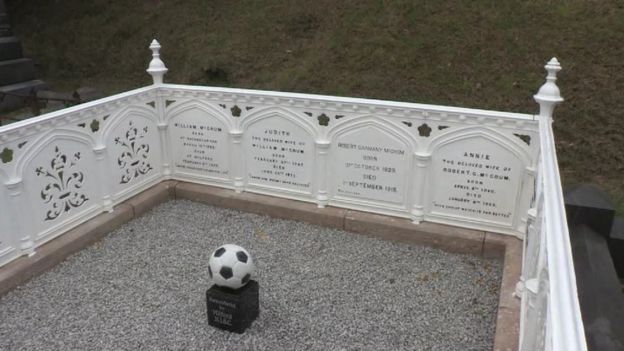Kicks taken to the high corners are more successful that other spots. Ignacios Palacios-Huerta, an Economist, has studied this and produced a definitive report on penalty taking and success. Ben Lyttleton's "Twelve Yards-The Art and Psychology of the Penalty Kick" is on the book shelves now.
Well, Manchester City's Gabriel Jesus, scored the controversial penalty against Andriy Pyator from Shakhtor Donetsk last night.
https://www.dailystar.co.uk/sport/football/741146/Raheem-Sterling-penalty-pictures-Man-City-star-wins-after-kicking-the-GROUND
This has involved much debate on social media.
In 1890, the Milford Everton goalkeeper, William McCrum, living in County Armagh, persuaded the Irish FA to propose a "penalty" law. The idea was turned down initially because a serious infringement of the already established laws within 12 yards of the goal would suggest ungentlemanly conduct and this "just doesn't happen". Despite this fame, McCrum died penniless.

In February 1891 Notts County led Stoke City 1-0 in the final seconds of the FA Cup quarter-final. Outfield player Hendry of Notts County handled a Stoke shot destined for goal, with his keeper beaten. Stoke were awarded an indirect free kick, which was the punishment at that time and the ball was scrambled away.
County won 1-0 and reached the final, losing to Blackburn Rovers 1-3. The following season the English FA introduced the new law.
The famous amateurs, The Corinthians, announced that the inclusion of the penalty law assumed that players would be likely to commit unsportsmanlike behaviour. For many years Corinthian goalkeepers would stand to one side of the goal if a penalty was awarded, stating that if a penalty was the referee's decision then one of their players must have been unsporting and therefore the team deserved to concede a goal.
In 1937 the FA inserted a part into the law that insisted that the goalie should stand between the posts.
So this brings me to Raheem and Manchester City, who were just leading in their European Champions' League match last night. Sterling did not get tripped up by a Shakhtor defender and he did not claim a penalty although the referee and his four officials, including the two Harry Potters with their wands, deemed Sterling had been unlawfully fouled. I wonder what his team mates and coaching staff, manager, owners and crowd would have thought if he (or one of his colleagues) had deliberately missed the penalty!
By the way, the City penalty taker, Jesus, stuttered in his run up, surely against the law which states: The penalty taker must approach the ball in a single fluid movement. (IFAB 1981)
 RIP William McCrum, his family grave.
RIP William McCrum, his family grave.
No comments:
Post a Comment